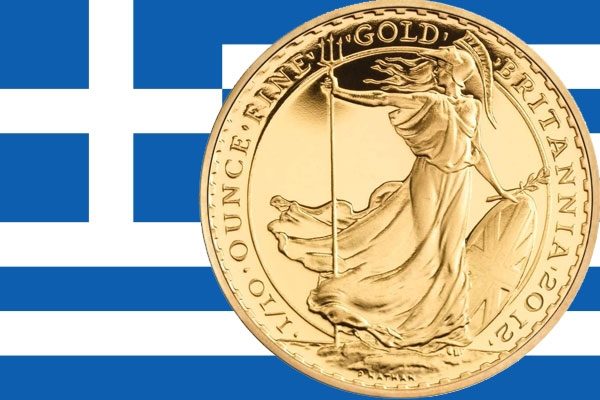The Everything is Fine Meme
Initially, we were also a bit surprised that the gold price didn’t rise when the threat of a Greek exit from the euro area became more palpable following the breakdown in negotiations and the outcome of the Greek referendum. After all, it was to be expected that “risk assets†would suffer and so-called safe haven assets would be sought after, at least temporarily.
However, upon giving the matter some thought, we have concluded that gold’s lack of a response (in fact, it went slightly down rather than up, so there was actually a response) could actually be explained quite easily. For one thing, speculators increased their net long position in gold futures by more than 20,000 contracts net in the week before the negotiations broke down, apparently in anticipation. While they did so, the gold price barely budged, so in a sense it was “wasted firepowerâ€.

Image via eghtesadnews.com

Prior to the breakdown in negotiations between the troika and Greece, speculators increased their net long position in gold (above the net hedger position is shown, which is the inverse of the speculative position) – click to enlarge.
When no large increase in prices occurred on the Monday after the referendum had been announced, these new positions were quickly liquidated again. The downturn in prices in turn emboldened speculators to add to their short positions, pressuring prices even further.
There are other reasons for the reaction as well. One is that in spite of a bit of a wobble in stocks, the essential “everything is just fine†story hasn’t really been derailed. The dangers of a “Grexit†are probably underestimated and up until recently, no-one believed it to be a likely outcome anyway (it still isn’t, although it is more likely than it once used to be).
If the underlying fundamental situation is held to be essentially unchanged, this also implies that the Fed’s often announced rate hike – i.e., the most heavily advertised and most often postponed baby step rate hike in the history of central banking – will actually be implemented. This is held to be bearish for gold, but of course rate hikes are not bearish per se – it all depends on inflation expectations at the time they are enacted.

A 30 minute chart of August gold futures over the past week – click to enlarge.
A Grexit Would Initially be Deflationary
Moreover, an actual “Grexit†would have mildly deflationary consequences for the euro area, negating the ECB’s monetary pumping efforts to some extent. This is so because the deposit money remaining in Greek banks would be subject to a severe haircut. If the ECB withdraws ELA financing, Greece’s commercial banks will be instantly insolvent (this is to say, the inherent insolvency of Greece’s fractionally reserved banks would become manifest very quickly). All their creditors would lose a sizable part of their claims and depositors could at best hope to regain a small proportion of their deposits. Most likely whatever they would be able to get back after the deflationary confiscation of the bulk of their savings would be redenominated in a fast plunging new currency (essentially equivalent to the Argentinian post-default playbook).

